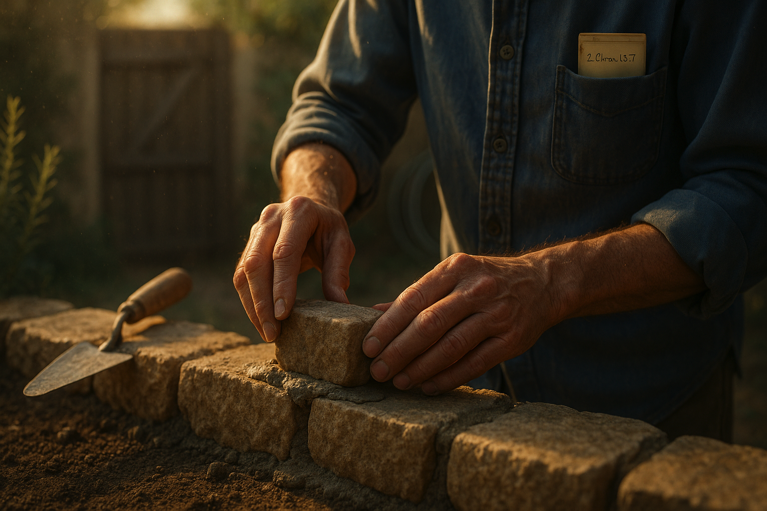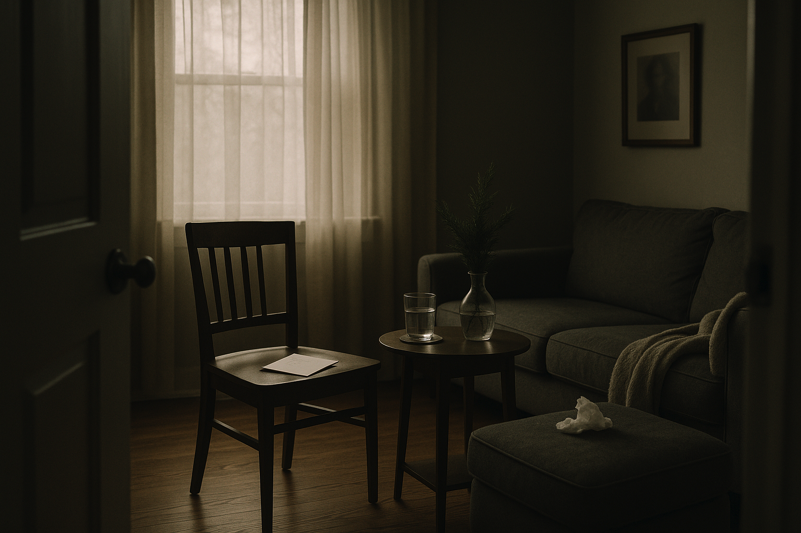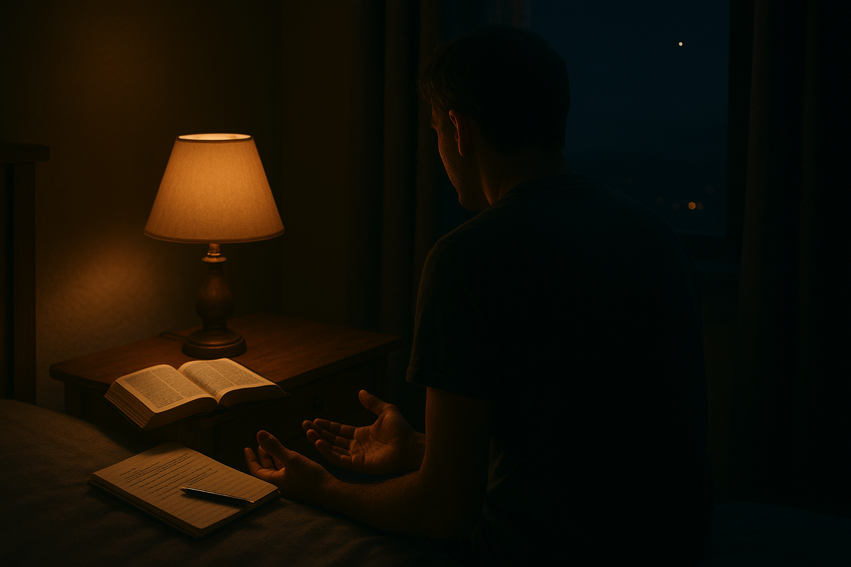The Work Beneath the Ache
— a Scriptural Consideration —

Sometimes strength looks like nothing more than breathing through another minute. Not charging forward. Not fixing what’s broken. Just staying — right there — when you could so easily drift away.
Jehovah told Asa, “Be strong and do not become discouraged, for your activity will be rewarded.” (2 Chronicles 15:7)
That wasn’t spoken to a man standing in victory. It was said to someone in the thick of exhaustion, when faith had become heavy and progress felt invisible.
We usually think strength means momentum. Something visible. Something measurable. But Asa’s “activity” wasn’t dramatic — it was obedience. Keeping the altar clean. Repairing the temple. Rebuilding what neglect had hollowed out. Day after day, stone by stone.
That kind of strength doesn’t roar. It breathes.

“Better to go to the house of mourning than to the house of feasting, for that is the end of every man, and the living should take it to heart.” (Ecclesiastes 7:2)
That verse unsettles us because mourning isn’t comfortable. It’s honest. It strips away the small talk. It reminds us of what lasts — and what doesn’t.
At the house of mourning, you stop pretending that time is endless. You feel your own heartbeat and realize how fragile it is. You watch someone cry over a life that mattered, and you wonder if you’re living yours with the same weight.
What if the house of mourning isn’t just a place of death, but the place where life finally becomes real? What if grief is the classroom where compassion grows — where you learn that being present in pain is sacred work?

“By this we will know that we originate with the truth, and we will assure our hearts before him regarding whatever our hearts may condemn us in, because God is greater than our hearts and knows all things.” (1 John 3:19, 20)
There it is — the heart that condemns. Not the world, not critics — your own heart. But Jehovah knows the parts of you that no one sees. The fight to keep praying when you feel unheard. The struggle to stay kind when the pain makes you irritable. The decision to open your Bible again when the words blur with tears.
He knows. And that knowledge outweighs your self-accusation.
The goal was never to win the race — only to finish it. “I have fought the fine fight, I have run the race to the finish, I have observed the faith.” (2 Timothy 4:7)
Even when you stumble, you keep running toward Him. Even when you’re wrong, you keep believing, like Job — still speaking, still reaching, still refusing to let go. Faith isn’t flawless performance. It’s holding on when you don’t understand.
All those names in Scripture — Moses, Ruth, Jeremiah — they were just like us. “I am the man who has seen affliction.” (Lamentations 3:1) They walked it out, mistake by mistake, prayer by prayer. And the same God who steadied them steadies you.
If the Bible were written today, it would tell the stories of faith being lived now — the quiet acts of endurance, the unseen faith that keeps finishing the race. But Jehovah already gave us enough. Every heartbeat of human faith is somewhere in those pages.
He doesn’t wait for perfect form. He matches your pace, keeps you in the race, and calls it victory just because you stayed.
So breathe again. Even here. Because this ache — this quiet, trembling perseverance — is your worship. And He is already rewarding it.